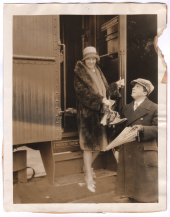'Reluctant Fundamentalist' flips the usual suspects---and sympathies
"Where do you see yourself in 25 years?" the brilliant young Pakistani financial analyst is asked, while flipping burgers at an office picnic in New York.
"Let's see ... 25 years ...," he muses. "I'm gonna be the dictator of an Islamic republic with nuclear capabilities."
He's kidding, of course.
Or is he?
He has a rather different reply later, when asked the same question by his boss: "I'd like to be a managing director at Underwood."
Changez Khan (Riz Ahmed) is "The Reluctant Fundamentalist" in more ways than one, hesitating at the dangerous intersection of his American Dream and his Islamic roots, in a psychological-political thriller based on Mohsin Hamid's compelling novel.
Fresh out of Princeton in the 1990s, Changez's uncanny analytical skills get him hired at one of Wall Street's most prestigious firms, where he is mentored by hard-driving boss Cross (Kiefer Sutherland). Professional success is followed by romantic success -- or a measure of it -- with artsy-fartsy photographer Erica (Kate Hudson), who is still grieving the recent death of her previous boyfriend.
Flash forward a decade, from New York to Lahore: Suave, so
sophisticated Changez is back home as a distinguished university professor. A U.S. citizen there is kidnapped by terrorists, and the clock is ticking on his execution. American journalist Bobby Lincoln (Liev Schreiber) shows up to interview Changez about it.
"You are a person of interest," says Bobby.
"How do I become uninteresting?" Changez wonders.
Flash backward to the 9/11 attack and its aftermath, as Changez (Urdu for "Genghis") -- the recent Ivy League darling of Wall Street -- is now put through the ringer, profiled and interrogated as a potential terrorist. Identity crises abound: Is he secretly a radical militant Muslim? Is Bobby an undercover operative?
Director Mira Nair's fascination with the challenges of immigrants and minorities dates from her "Mississippi Masala" (1992), an interracial love story starring Denzel Washington. Here, she is challenged indeed -- an Indian director making an intrinsically politicized film about a Pakistani. To the extent it's successful, she (and we) can thank Mr. Ahmed, an Oxford-educated Pakistani actor ("Four Lions," "The Road to Guantanamo"), whose empathetic performance as the emotionally and spiritually conflicted protagonist is little short of perfect.
Ms. Hudson's portrayal of the feisty but flawed photographer is competent but less a flesh-and-blood character than a metaphor for the nation that welcomes him before but recoils from him after 9/11. Mr. Schreiber plays his role as the typical movie journalist who'll stop at nothing to get a good story -- but atypically packs a gun. His Bobby is not really a worthy foil to Changez.
Mr. Sutherland, on the other hand, is fun to watch, chewing up the scenery as usual. And Michael Andrews' semi-funk score combines with traditional Sufi tunes (mystical Urdu poems recited in song) for an excellent soundtrack.
At 130 minutes, "Fundamentalist" is too long, but its real problem isn't length. It's William Wheeler's heavy-handed screen adaptation and its gratuitous "action" elements (kidnapped American and radical students subplot) that detract from Mr. Hamid's lean, intimate (224-page) novel -- essentially, a mind game of disillusionment.
But despite those faults, it's still a gutsy exploration of the Great Divide between American and Muslim takes on the war on terrorism -- no more partisan or manipulative than, say, "Argo" or "Zero Dark Thirty." Its single most chilling moment is Changez's confessional acknowledgment of a brief, instinctive satisfaction -- "as if David had struck Goliath" -- when he first glimpsed the World Trade Center in flames.
The terrible struggle with his own inner and outer conflicts -- his quick plunge from respect and acceptance to suspicion and humiliation -- seems more painfully relevant here and now, post-Boston Marathon, than Mr. Hamid could have known when he wrote his book or than Ms. Nair could have known when she made the film. Changez is a black sheep not just in America but in Pakistan, where his poet father and educated family scorn his desertion of their ways for the lure of money and Western values. How to fathom his -- or the Tsarnaev brothers' -- twisted process of alienation from the adoptive country they simultaneously love and hate? Is Changez really a man of violence or not?
This reluctant fundamentalist is a stranger in a land just as strange as his own.






